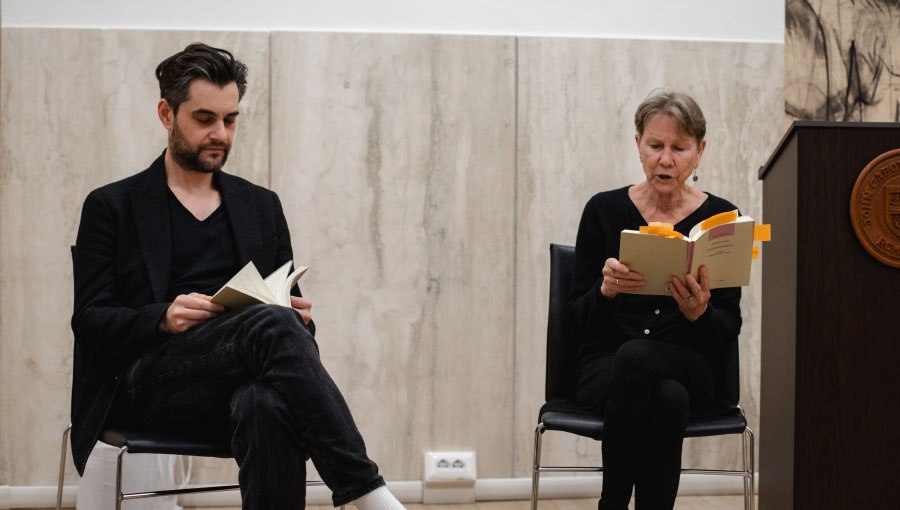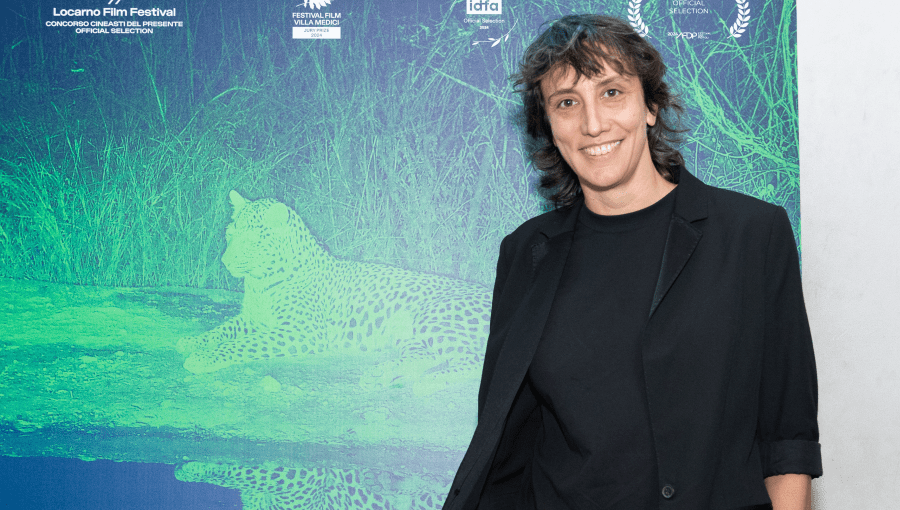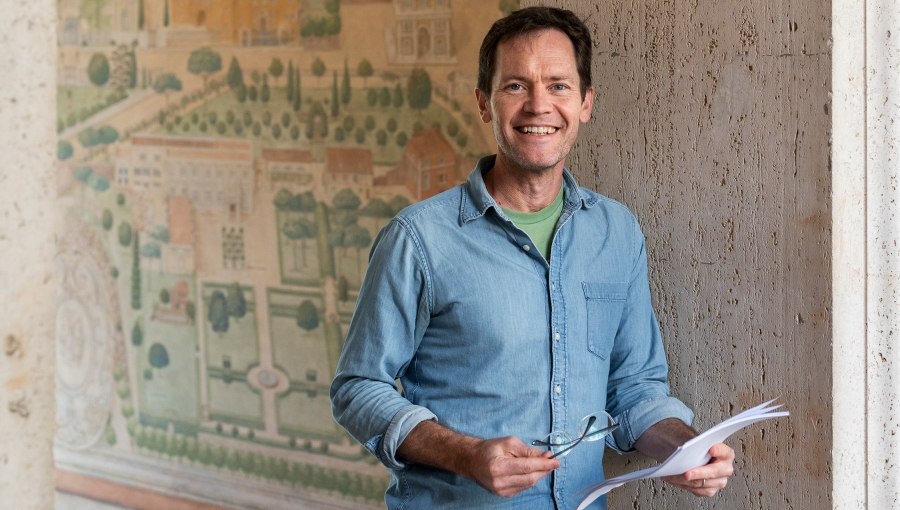The Power of Doubt: English Professor Jonathan Jones
Originally from Stoke on Trent, England, Professor Jonathan Jones has been teaching at JCU since 2014. His academic background has always been rooted in literature and creative writing, with a strong focus on modernist fiction. Professor Jones holds a Ph.D. in Literature from Sapienza University in Rome. He will teach English Composition and American Literature in Fall 2022.

Jonathan Jones
Tell us about your background.
I moved to Rome in January 2008, and I started teaching at JCU in 2014. What drew me to Rome was a combination of factors, not least the fact that Liverpool F.C. won two European cups here in 1977 and 1984, so I always saw the city as a place that augured well if you were a Liverpool fan.
You teach English Composition at JCU. What is your advice to aspiring writers?
Reading as many different texts (scholarly articles, novels, plays, poems, short stories) and exposing yourself to as many different authors and ideas as possible is the foundation of strong writing across all disciplines. You can learn from all writers, and you do not necessarily have to agree with an argument to concede that it is still valid.
In terms of the mechanics of writing, do the simple things well. There is an applied technique to achieving a high level of readability in your writing. Edit all redundancy. Don’t try to sound “academic.” Focus on clarity of meaning for the reader. Read your work out loud. Don’t be afraid to experiment in terms of your choice of language so long as it is concrete and specific. To learn to appreciate how the different rhythms of sentences combine, you must learn to listen to your own voice and how it engages in scholarly conversation with others.
Remember, there is a direct correlation between the amount you read and seeing an improvement in your writing. You will never again have as much free time to read once you leave university and you should make the most of every opportunity. Don’t shy away from constructive criticism of your work, be it from a professor, small independent press, academic journal, literary agent, or major publisher.
What are the challenges and the rewards of teaching English Composition? What is your teaching philosophy?
I don’t have any teaching philosophy as such, except to try and encourage students to look less for definitive answers and rather to frame their arguments as a constant interrogation of what is more problematic, complex, or nuanced, about the topic they are discussing. The challenges of teaching English Composition vary in that every class dynamic is different and there must be scope within the pedagogical setting to adapt and respond both to individual as well as the collective needs of students. The rewards come for me when students bring up questions that challenge my own ideas and critical attitudes toward a particular text or issue. On a purely technical level of writing, every time a student learns to avoid the phrase, “Since the beginning of time/history/the dawn of man…” at the start of their essay, I feel I am making my own small contribution towards fending off the final collapse of Western Civilisation.
Your research interests focus primarily on the work of Francis Scott Fitzgerald. How did you get interested in this author?
My interest in Fitzgerald first began when I read The Great Gatsby in high school. I then started reading his other novels and short stories, which were kind of my entry drug to exploring American literature as a whole. For me, everything starts with Fitzgerald and then gets better and worse, the essence of cognitive dissonance. Seventeen is a very impressionable age to read The Great Gatsby if you have ambitions to write yourself. That said, the romantic appeal of Fitzgerald’s life and works shouldn’t be underestimated or disparaged as he not only speaks to how it feels to be young across generations, but also to the power of the imagination to affect both social and historical change. The critical debate surrounding the question of what is the “great American novel” may read as a little outdated now, but for me Fitzgerald’s genius with The Great Gatsby is the way he finds the perfect symbolic mode for expressing the American dream of self-invention.
Is literature still relevant today? Why should a student choose to major in English Literature?
I think the world we live in, however technologically advanced or dystopian you view it, continues to construct itself through language and stories. Rome itself is a city which couldn’t be navigated without the ability to recognize various signs and symbols that are embedded in narratives that reveal and comment on so much of Western thought and culture. Students should choose to major in English literature because it reminds us how essential we are as scholarly readers in co-creating meaning. As readers we are always creatively complicit in an ongoing act of authorship, adding to and enriching the narratives we are often surprised to find ourselves already embedded in.
Name three books that everyone should read and explain why.
Absalom, Absalom! by William Faulkner. I think it remains one of the most relevant books in attempting to understand the complexity and tragedy of contemporary America and its attitude towards race, class and the South.
Great Expectations by Charles Dickens. It is just a wonderful meditation on the way we all at some point in our lives fall short as human beings; the way we may begin with lofty principles and good intentions and yet inevitably come to realize on some level we may have compromised the ideals of our youth.
The Little Sister by Raymond Chandler. The critical distinction between high and low art may seem quite elitist and maybe even tedious nowadays, but for me Chandler kind of neutralizes these distinctions in that his books are often both at the same time (more cognitive dissonance!). All his novels are gems, but this one for me probably resonates the most. The final line blows you away.
What projects are you currently working on?
I have a chapter forthcoming on Scott Fitzgerald, “Nostalgic Exile – Mapping the South and American Modernity in “The Swimmers”” which is due to be published this September as part of a collection of essays entitled The Romance of Regionalism in the work of F. Scott and Zelda Fitzgerald: The South Side of Paradise.
Anything else you’d like to add?
Whenever in doubt, just say “cognitive dissonance.”





